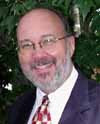I will be forever grateful to the Unity movement for introducing me to the writings of John Shelby Spong. He was the Episcopal Bishop of Newark New Jersey until his retirement in 2000 and has been a leading voice for progressive Christianity for over 30 years. Bishop Spong was a keynote speaker at the 2009 conference of our Association of Unity Churches International where he received the Light of God Expressing in Society Award for his work.
His books have provocative titles such as: Rescuing the Bible From Fundamentalism; Why Christianity Must Change or Die; Resurrection: Myth or Reality? and Jesus for the Non-Religious. Now we can add to that list his latest challenge to the status quo: Eternal Life: A New Vision; Beyond Religion, Beyond Theism, Beyond Heaven and Hell. This book is not for the faint of heart.
We are used to John Spong leveling devastating critiques of traditional Christian dogma with most Unity folks cheering him on. In Eternal Life, he expands his territory. Do you believe that God has a plan for your life or that the “soul” chooses your destiny? Bishop Spong convincingly argues that he is an accidental human being, not the product of anyone’s design and without any obvious preconceived purpose.
Nor does he find it reasonable to believe in any concept of eternal life where our personality carries over. That would rule out traditional notions of heaven and reincarnation. After looking into near death experiences, he remains more skeptical than convinced.
Another challenging observation he makes is that this present moment appears to be little more than the non-real instant through which the future passes on its journey to the past and concludes that it is the present that actually doesn’t exist for human beings. How will that sit with fans of Eckhart Tolle and The Power of Now?
He believes than human beings should have the personal and legal right to choose when and how to die. This decision is called a moral and ethical decision to be celebrated and lauded. He makes it clear that these are his personal views while backing them up with evidence based on a lifetime of research and experience.
His passion for the subject matter arises from the fact that he is 79 years old and facing these issues in a very real way. Although he is vital and healthy, he candidly admits that this may be his final book. If so, it will be a fitting epitaph for a man who has never been afraid to ask the tough questions about matters of faith and then follow the evidence to wherever it may lead; even it meant taking an unpopular position or abandoning comfortable but outdated beliefs.
For those who are curious about Bishop Spong’s final conclusions, without giving anything away, this quote from the book provides a hint: “Our ultimate destiny was never to be religious human beings, as we once thought; it was simply to be fully and totally human. Religion, that human activity to which we once entrusted our destiny, is now revealed only as a stage of life that had to be transcended before we could discover our destiny… It has been the human destiny to walk through the fearful and the limiting in order to discover the transcendent and the infinitely real. We had to walk through self-consciousness to discover the universal consciousness.”
Bishop Spong is a first rate scholar and his book has plenty of substance for those of us who need footnotes and an extensive bibliography. He also recounts almost his entire life story which gives the book an autobiographical flavor. He is quite repetitive about his key points which might be an annoyance to some readers but is perhaps a reasonable accommodation in our attention span challenged culture.
This is a book meant to encourage dialogue about difficult issues. For those who are ready to let go of supernatural or superstitious explanations for what happens when we die, Bishop Spong provides a basis for finding a new and more reason based approach to living and dying with a transcendent sense of meaning and purpose.
Subscribe to:
Post Comments (Atom)

No comments:
Post a Comment